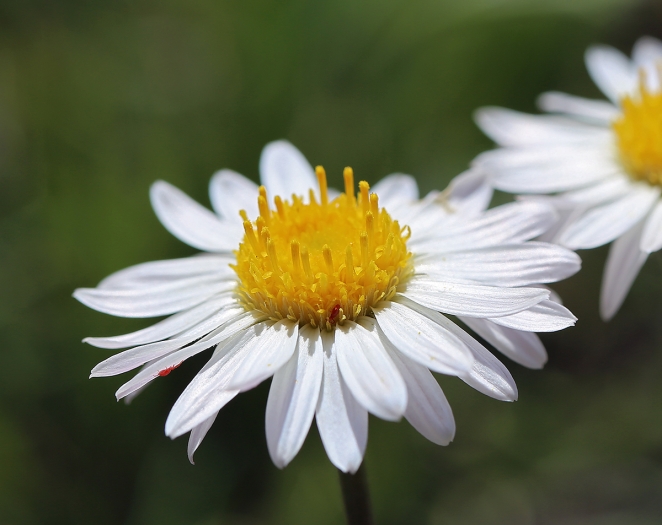Eaton’s Fleabane
(Erigeron eatonii)
Eaton’s Fleabane (Erigeron eatonii)
/
/

© Steve Matson
CC BY 4.0
Image By:
© Steve Matson
Recorded By:
Copyright:
CC BY 4.0
Copyright Notice:
Photo by: © Steve Matson | License Type: CC BY 4.0 | License URL: http://creativecommons.org/licenses/by/4.0/ | Uploader: matsonburger | Publisher: iNaturalist |

























Estimated Native Range
Summary
Erigeron eatonii, commonly known as Eaton’s fleabane, is a perennial herb native to a variety of habitats including alpine meadows, subalpine coniferous forests, and dry, rocky slopes in the western United States, particularly in the states west of the Rocky Mountains. It typically grows from 2 to 12 inches tall and features narrow, lance-shaped leaves along with hairy stems. Each stem can produce one or more flower heads, each up to 1 inch wide, with yellow disc florets encircled by white, though occasionally blue or pink, ray florets. Eaton’s fleabane blooms from late spring to early summer, and its flowers are modestly showy, attracting pollinators such as bees and butterflies.
Eaton’s fleabane is valued for its adaptability to various soil types and moisture levels, making it a versatile choice for rock gardens, wildflower meadows, and native plant landscapes. Its drought tolerance and ability to grow from a taproot make it suitable for xeriscaping and restoration projects. In cultivation, it prefers full sun to part shade and requires well-drained soil. While generally low-maintenance, it can be susceptible to powdery mildew and root rot if overwatered or planted in poorly drained soils.CC BY-SA 4.0
Eaton’s fleabane is valued for its adaptability to various soil types and moisture levels, making it a versatile choice for rock gardens, wildflower meadows, and native plant landscapes. Its drought tolerance and ability to grow from a taproot make it suitable for xeriscaping and restoration projects. In cultivation, it prefers full sun to part shade and requires well-drained soil. While generally low-maintenance, it can be susceptible to powdery mildew and root rot if overwatered or planted in poorly drained soils.CC BY-SA 4.0
Plant Description
- Plant Type: Herb
- Height: 0.5-1.5 feet
- Width: 0.5-1 feet
- Growth Rate: Moderate
- Flower Color: White, Pink, Purple
- Flowering Season: Spring, Summer, Fall
- Leaf Retention: Deciduous
Growth Requirements
- Sun: Full Sun, Part Shade
- Water: Low
- Drainage: Fast, Medium, Slow
Common Uses
Low Maintenance, Rock Garden
Natural Habitat
Alpine meadows, subalpine coniferous forests, and dry, rocky slopes
Other Names
Common Names: Eaton’s fleabane, Alpine daisy
Scientific Names: , Erigeron eatonii, Erigeron eatonii f. eatonii, Erigeron eatonii f. molestus, Erigeron eatonii subsp. eatonii, Erigeron microlonchus, Erigeron ochroleucus, Erigeron pacificus, Erigeron tener,
GBIF Accepted Name: